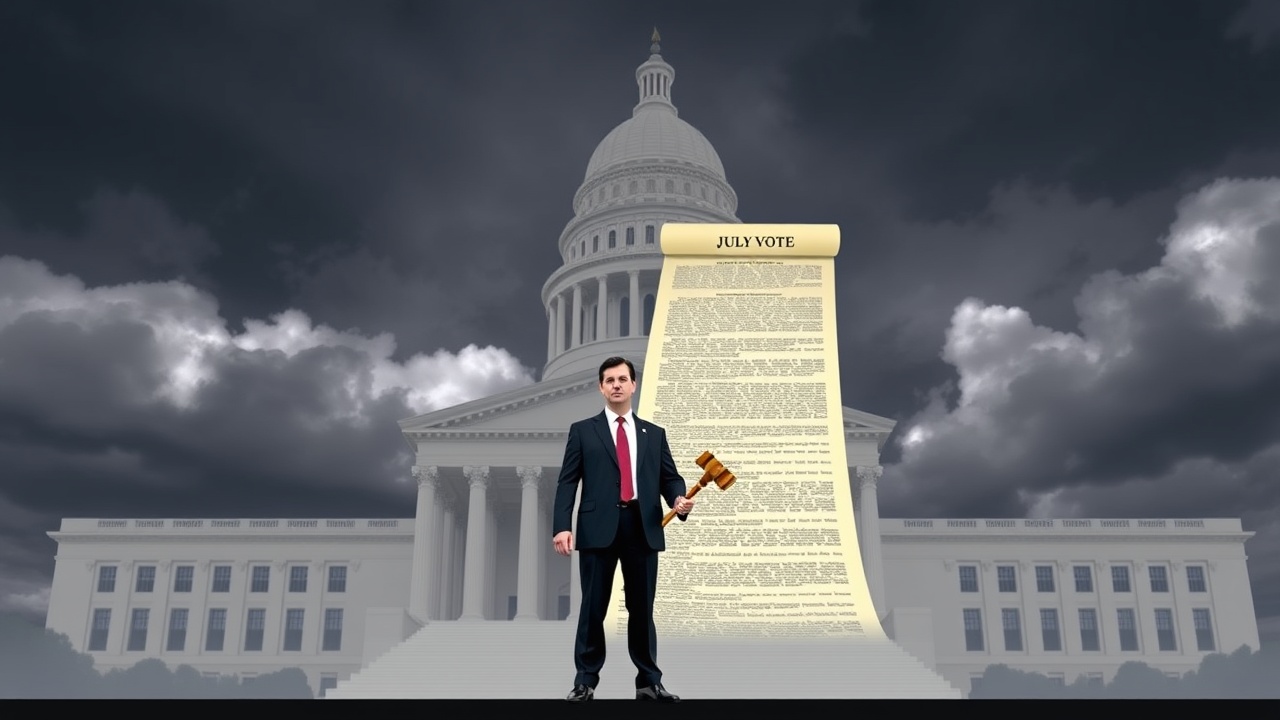Concerns Over the GENIUS Act
New York Attorney General Letitia James has voiced significant apprehension regarding the recently ratified GENIUS Act, urging Congress to take a more cautious approach before formally establishing regulations for stablecoins. In a letter distributed to congressional leaders on Monday, she highlighted potential risks that the current bill poses to investors and the stability of the U.S. financial landscape.
Overview of the GENIUS Act
The “Guiding and Establishing National Innovation for U.S. Stablecoins Act” received Senate approval last month with a notable vote of 68-30. This legislation represents the first comprehensive framework focused exclusively on stablecoins. Among its stipulations, the bill mandates that issuers maintain full dollar backing and complete monthly disclosures related to their reserves. Now, the bill has progressed to the House of Representatives, where a vote is anticipated shortly.
Criticism of the Bill
“Across the nation, countless individuals are investing substantial amounts in cryptocurrencies; however, our current regulatory framework fails to shield them from fraudulent activities,”
she expressed in her correspondence.
Attorney General James has criticized the GENIUS Act for not providing adequate protections for public investments. She contended that the absence of oversight in cryptocurrency transactions poses risks not only to investors but also threatens the economy and national security.
Call for Stricter Regulations
James cautioned that the legalization of stablecoin issuance, devoid of robust regulation, opens avenues for potential financial misconduct. Emphasizing the need for stricter accountability, James advocated that Congress should classify stablecoin issuers like traditional banking institutions, which would involve enhanced regulatory scrutiny, higher capital requirements, and the inclusion of FDIC insurance for stablecoin deposits. Additionally, she recommended implementing digital identity verification systems for users to mitigate fraud, deter money laundering, and prevent criminal entities from operating anonymously.
Concerns About National Security
James further articulated concerns about the vulnerabilities posed by anonymous transactions associated with stablecoins, suggesting that these features could be exploited by organized crime or terrorism. Without stricter regulatory measures, she posited, the GENIUS Act risks jeopardizing national security and leaving the economic structure vulnerable.
Regulatory Jurisdiction and Community Impact
In her letter, she also highlighted the necessity of keeping stablecoin issuers under U.S. regulatory jurisdiction, as offshore platforms complicate enforcement and undermine regulatory standards. Furthermore, she expressed concern regarding potential adverse effects on community banks, emphasizing their vital role in supporting rural and underserved populations.
Opposition to Other Legislation
In addition to her opposition to the GENIUS Act, James addressed the House Financial Services Committee regarding the Digital Asset Market Clarity Act (CLARITY), criticizing its provisions for protecting wrongdoers, facilitating market manipulation, and denying regulators the necessary tools to combat fraud. She asserted that both bills, if passed without critical amendments, would foster a lenient regulatory environment that prioritizes the interests of the industry over those of consumers.
“It is essential for Congress to allocate additional time to thoroughly draft legislation that encourages innovation while safeguarding our globally admired banking system,”
she asserted in her communication.
Future of Stablecoin Regulation
Although the GENIUS Act garnered bipartisan support in the Senate, it has ignited varied responses from regulatory bodies and state officials alike. The measure restricts stablecoin emissions to licensed institutions and requires stringent asset backing, along with consumer protection clauses for instances of issuer bankruptcy. Notably, President Donald Trump has publicly expressed his endorsement of the bill, urging swift action for its passage.
Despite this support, James insists on the necessity for meticulous examination of the bill, warning that advancing stablecoin laws absent further safeguards could expose American investors to risks. The House of Representatives is projected to conduct procedural votes on both the GENIUS and CLARITY Acts in the week beginning July 7, and the approval of either would signal a considerable transformation in the regulatory approach to digital assets in the United States.
James has previously alerted Congress to the importance of establishing “common sense principles” in cryptocurrency legislation, advocating for stablecoin issuers to operate domestically and suggesting limitations on cryptocurrency investments within retirement accounts. As efforts in Washington gain traction toward concrete crypto regulations, she is advocating for a balanced approach, asserting that investor safeguards and financial security must remain paramount in any swift legislative action.




